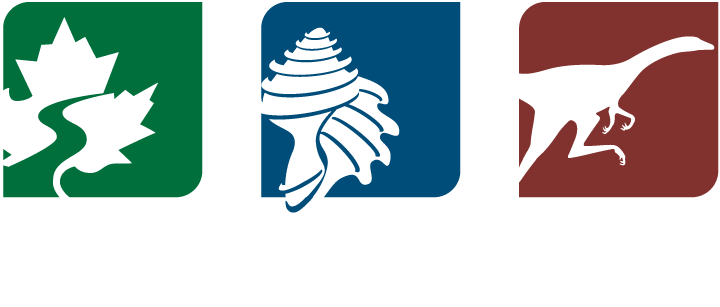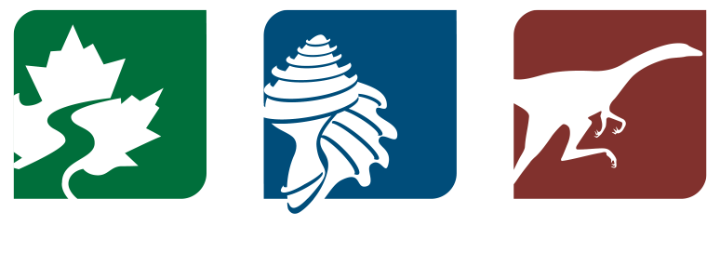Carlie Pietsch
Carlie Pietsch
Carlie Pietsch
Paleoecologist
Carlie Pietsch is a paleoecologist. She studies the impact of extreme climate events on marine (saltwater) invertebrates in the fossil record.
Carlie attended Cornell University in Ithaca, New York, earning her bachelor’s degree in ecology and evolutionary biology in 2009. As a college student, Carlie volunteered and interned in the Paleontological Research Institution (PRI) fossil collections and assisted at PRI’s Museum of the Earth. She was mentored by PRI paleontologists Warren Allmon and Greg Dietl, as well as Cornell graduate students Ursula Smith and Mary Kosloski. She later went on to earn a PhD from the University of Southern California.
Carlie returned to New York for a postdoc (a temporary research position) with Warren Allmon from 2015 to 2017. During her postdoc, Carlie also worked with and learned from Linday Ivany of Syracuse University. Carlie joined the faculty of San José State University in San Jose, California, in 2017. There, she runs a paleontology lab and mentors undergraduate and master’s students in research and teaching. She is currently an Assistant Professor.
Carlie’s overarching goal is to use her work in paleontology and the geosciences to advocate for the Earth through teaching, science communication, and innovation. One of Carlie’s major interests is the study of extreme climate events in the fossil record. She investigates how fossil marine (saltwater) invertebrate communities recovered after extreme climate events and examines which factors may have helped or hindered their recovery. She also researches how extreme climate events affected the evolution of marine invertebrates. Her work has importance for understanding and perhaps mitigating the effects of human-caused climate change and extinction today.
In the field
The photos below show Carlie doing field work in Mississippi in 2021. Read the full story on PRI’s blog. (The photos below are part of a gallery; click on each photo to see the full-size image and complete caption.)
Daring to Dig Interview
In this interview, Carlie discusses her development as a scientist, including her experiences with faculty mentors and peers. She also discusses her role as a faculty member. This interview was recorded in 2017.
Content note: This video includes a description of sexual harassment.
Selected works by Carlie Pietsch
Ivany, L.C., C. Pietsch, J.C. Handley, R. Lockwood, W.D. Allmon, and J.A. Sessa. 2018. Little lasting impact of the Paleocene-Eocene Thermal Maximum on shallow marine faunas. Science Advances 4(9): eaat5528. Link
Pietsch, C., S.A. Mata, and D.J. Bottjer. 2014. High temperature and low oxygen perturbations drive contrasting benthic recovery dynamics following the end-Permian mass extinction. Palaeogeography, Palaeoclimatology, Palaeoecology 399: 98–113. Link
Pietsch, C., H.C. Harrison, and W.D. Allmon. 2016. Whence the Gosport Sand (upper middle Eocene, Alabama)? The Origin of glauconitic shell beds in the Paleogene of the U.S. Gulf Coastal Plain. Journal of Sedimentary Research 86: 1249–1268. Link
Pietsch, C., E. Petsios, and D.J. Bottjer. 2016. Sudden and extreme hyperthermals, low-oxygen, and sediment influx drove community phase shifts following the end-Permian mass extinction. Palaeogeography, Palaeoclimatology, Palaeoecology 451: 183–196. Link
Pietsch, C., K.A. Ritterbush, J.R. Thompson, E. Petsios, and D.J. Bottjer. 2019. Evolutionary models in the Early Triassic marine realm. Paleogeography, Paleoclimatology, Paleoecology 513: 65–85. Link
Further reading
Allmon, W.D. 2021. In search of the last Cretaceous turritellid gastropod, and the aftermath. Paleontological Research Institution blog. Link
Video & audio content
Science in the Virtual Pub: Women in Paleontology Discussion Panel. Panel for Daring to Dig exhibit held 25 March 2021. Video, 2021, via YouTube. Link




